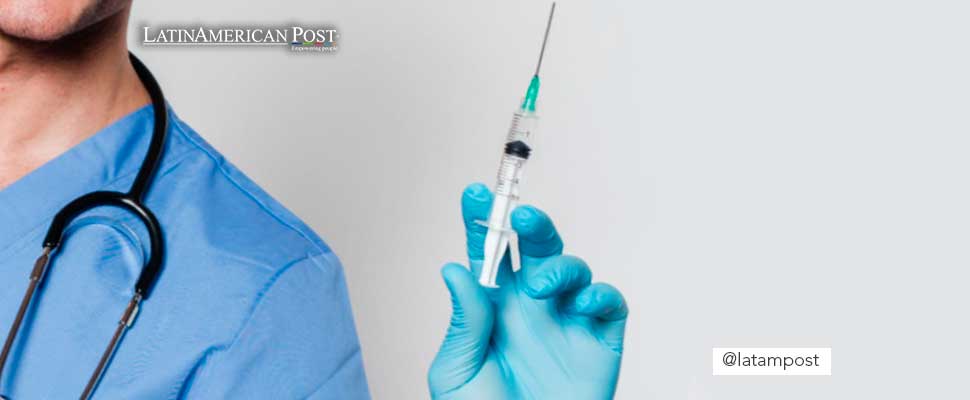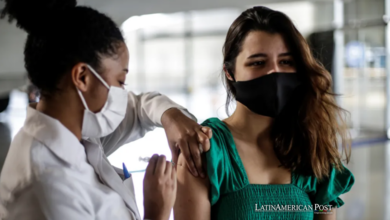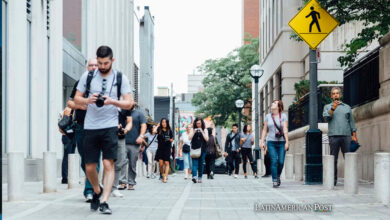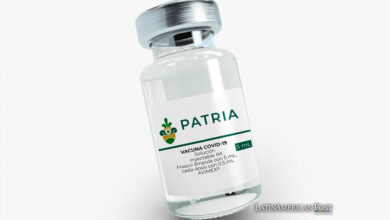Anti-vaccines: your body, your choice
The anti-vaccine arguments of defending the free choice to be vaccinated can end up defending a progressive fight

As vaccination programs advance, so are anti-vaccine groups that, feeding back from unverified news sources, are reluctant to be inoculated for various reasons Photo: Freepik
LatiAmerican Post | Santiago Gómez Hernández
Listen to this article
Leer en español: Antivacunas: tu cuerpo, tu decisión
In the midst of the global pandemic of COVID-19, thousands of governments have found in vaccines a possible solution, if not to contagion, then to the high mortality caused by the Coronavirus and its other variants. However, as vaccination programs advance, so are anti-vaccine groups that, feeding back from unverified news sources, are reluctant to be inoculated for various reasons.
Strikingly, many of these anti-vaccine groups end up associating with ultra-conservative groups. Both defending theories such as individual (and religious) freedom over state laws, being able to reduce the interference of governments in private lives, and there are even those who assure that God will take care of them. There is also one or another denier of the Coronavirus who does not see any use in being injected with chemicals that have not been fully tested. Cases in which pastors have been reported to convince their parishioners not to get vaccinated . Cases that have been repeated in various countries of the continent .
Radical right-wing preacher Joshua Feuerstein tells Christians "you don't have to wear the mask, you got Jesus. You don't need the vaccine, you got Jesus." pic.twitter.com/AwfBigYsS5
— Right Wing Watch (@RightWingWatch) August 9, 2021
This has made several conservative or right-wing politicians raise their voices to defend this freedom of their voters. Either for political interests or because they also blindly believe in the previous arguments. What they have not realized is that with the defense of this speech, they are paving the arguments of one of the most relevant progressive struggles of recent times: abortion.
You may also be interested in: Opinion: The World Must Choose: Health or Freedom
This was the case of Gabriel Vallejo, representing the Chamber for the Democratic Center party of Colombia. Vallejo, like many North American politicians who have wanted to take a "libertarian" stance on vaccination and defended the decision to get vaccinated as an individual act. However, several opponents highlighted how their position is very similar to the movements that seek to decriminalize and legalize abortion.
Decisiones personales ante las que nadie, mucho menos el Estado, debe intervenir son el aborto, la elección de una pareja del mismo sexo y tantas otras a las que usted se opone, @GabrielJVallejo: como buen miembro del CD, en contra de la ciencia y a favor de la doble moral. https://t.co/ySSPIUFbQb
— Daniel Samper Ospina (@DanielSamperO) July 28, 2021
Vallejo's position on abortion had been that the majority choose to legalize the procedure or not, something very similar to what he today criticizes according to vaccination programs.
Frente al aborto les comparto estos pensamientos que me envió un amigo.
1. “Que tienen derecho a decidir sobre su propia vida… "lo dice la persona que nació de su propia voluntad".
(Seguir hilo)
— Gabriel J. Vallejo Chujfi (@GabrielJVallejo) February 24, 2020
However, so far no country in the region has authorized mandatory vaccination. So far, it has been decided to advance incentives and campaigns so that innoculation continues to be voluntary, but that it covers the majority of citizens.
Not all Christians are anti-vaccines, not all anti-vaccines are Christians
However, and despite the fact that there are several pastors (mostly in the United States) who have maintained an anti-vaccine and denialist discourse, we would do a lot of wrong assuming that these are all of them. There are several Christian leaders and church pastors who have been particularly provaccines and have been important players in vaccination programs.
In Latin America, various religious leaders have played a vital role in vaccination, and will continue to be relevant in transmitting verified information and rejecting Fake News. For example, several Christian leaders of Latino evangelical churches have come together to combat misinformation.
Vaccination as a political struggle
Unfortunately, this ethical and public health debate has reached the political parties and many will try to take sides with the intention of defending their votes and not as a subject of scientific debate. Ideally, as soon as we get to know the information collected by the scientific community, we can determine the actions to follow. Latino politicians of all spectra should understand that this is not their space to comment, and that decisions should be made with data and not with ideals.




